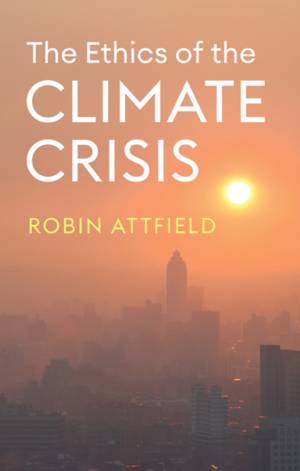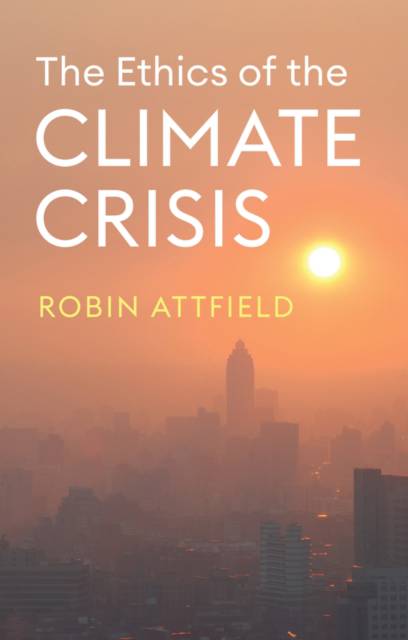
- Afhalen na 1 uur in een winkel met voorraad
- Gratis thuislevering in België vanaf € 30
- Ruim aanbod met 7 miljoen producten
- Afhalen na 1 uur in een winkel met voorraad
- Gratis thuislevering in België vanaf € 30
- Ruim aanbod met 7 miljoen producten
Zoeken
Omschrijving
The planet is in crisis. Time is short, but it is still possible to mitigate greenhouse gas emissions before disaster overtakes us all.
Renowned philosopher Robin Attfield explains the moral reasons for urgent action based on current harms, threats to future generations, and to the species with which we share the planet. In compelling and student-friendly prose, he explores the science of climate change, biodiversity loss and air pollution, climate injustices, political implications of the crisis, and possible responses. Among other things, he argues that measures to introduce climate justice should be paid for by countries able to pay, and by the big polluters in particular. The recently agreed Loss and Damage fund can play a central part in climate funding. Related political measures, such as the introduction of Ecocide as an international crime alongside war crimes, also give cause for hope.
Attfield's passionately argued twentieth book, The Ethics of the Climate Crisis, is crucial reading for our times.
Renowned philosopher Robin Attfield explains the moral reasons for urgent action based on current harms, threats to future generations, and to the species with which we share the planet. In compelling and student-friendly prose, he explores the science of climate change, biodiversity loss and air pollution, climate injustices, political implications of the crisis, and possible responses. Among other things, he argues that measures to introduce climate justice should be paid for by countries able to pay, and by the big polluters in particular. The recently agreed Loss and Damage fund can play a central part in climate funding. Related political measures, such as the introduction of Ecocide as an international crime alongside war crimes, also give cause for hope.
Attfield's passionately argued twentieth book, The Ethics of the Climate Crisis, is crucial reading for our times.
Specificaties
Betrokkenen
- Auteur(s):
- Uitgeverij:
Inhoud
- Aantal bladzijden:
- 276
- Taal:
- Engels
Eigenschappen
- Productcode (EAN):
- 9781509559084
- Verschijningsdatum:
- 26/04/2024
- Uitvoering:
- Hardcover
- Formaat:
- Genaaid
- Afmetingen:
- 140 mm x 223 mm
- Gewicht:
- 312 g

Alleen bij Standaard Boekhandel
+ 176 punten op je klantenkaart van Standaard Boekhandel
Beoordelingen
We publiceren alleen reviews die voldoen aan de voorwaarden voor reviews. Bekijk onze voorwaarden voor reviews.












